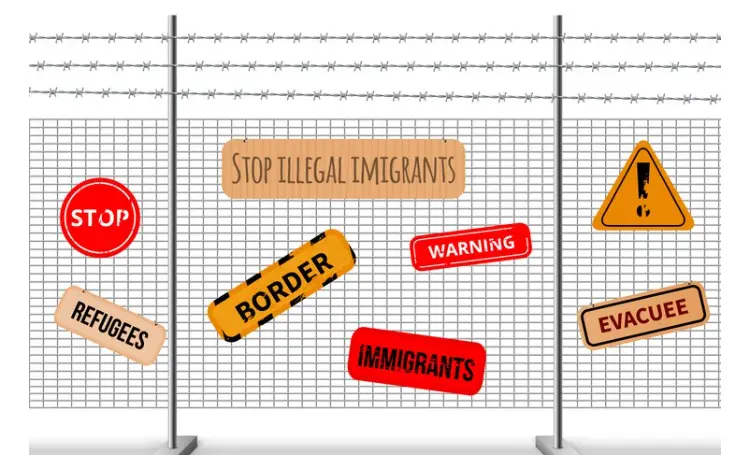The “Kankakee Mugshot Zone” has become a term widely recognized across the city of Kankakee, Illinois, and its surrounding areas. This phrase, often used in local media outlets and online platforms, refers to the public availability of mugshots taken during arrests. As the digital age has progressed, the practice of sharing these mugshots on various websites, social media platforms, and news outlets has sparked discussions about privacy, ethics, and the implications on individuals and communities. This article explores the significance of the Kankakee Mugshot Zone, how it impacts the people featured in these mugshots, the wider community, and the debate surrounding this controversial practice.
What is the Kankakee Mugshot Zone?
The Kankakee Mugshot Zone refers to a specific area where mugshots of individuals arrested in Kankakee County are regularly published online. These mugshots typically accompany basic information about the person, such as the charges they are facing, the date of their arrest, and sometimes, their personal history or prior criminal record. Many local news sites, law enforcement agencies, and independent websites regularly update their pages with mugshots from recent arrests in Kankakee.
In a time when public access to legal records and personal information is just a few clicks away, mugshot websites have become notorious for their vast collections of mugshots, and Kankakee is no exception. These sites attract significant traffic, often drawing attention to the individuals featured, whether they are facing minor charges or more serious criminal accusations.
The Rise of Mugshot Websites
Mugshot websites and their focus on criminal justice and arrest records have become a booming industry, especially as people increasingly turn to online platforms for information. These websites often use a “public record” justification to collect and publish mugshots and arrest details. While mugshots were once shared in newspapers and broadcasted on local news programs, the internet has exponentially increased their visibility.
The key difference between traditional media reporting on arrests and modern mugshot websites is that the latter often keep the photos available indefinitely. Moreover, some of these websites employ a “pay-to-remove” model, where individuals who appear in the mugshots must pay a fee to have them removed from the site. This business model has faced significant criticism for exploiting vulnerable individuals, many of whom are not guilty or were arrested for minor infractions.
In Kankakee, this trend is no different. The local population has witnessed the surge in mugshot postings, which raises significant concerns about privacy and the long-term impact on those featured.
How Mugshots Affect Individuals and Communities
The effects of being featured in the Kankakee Mugshot Zone can be far-reaching, not only for the individual involved but also for the entire community. Mugshots can carry severe consequences, both legally and socially.
1. Stigma and Social Isolation
One of the most immediate effects of a mugshot being posted online is the social stigma that accompanies it. Even if an individual is later found innocent or charges are dropped, the public perception may not change. The mugshot, often circulated widely, can permanently affect how people view the individual, leading to long-term consequences in both personal and professional spheres.
People may be judged unfairly based on their mugshot, leading to social isolation and a damaged reputation. In smaller communities like Kankakee, where everyone knows everyone, the consequences can be especially profound. A mugshot can leave a lasting mark on relationships, employment prospects, and overall social standing.
2. Impact on Employment Opportunities
For those arrested and featured in the Kankakee Mugshot Zone, the most challenging long-term impact may be on their employment prospects. Many employers conduct background checks as part of their hiring process, and mugshots are often included in these reports. Even if the individual has been cleared of charges, potential employers may still hesitate to hire someone who has been arrested. The mere presence of a mugshot, often accompanied by criminal charges, can significantly reduce a person’s chances of securing employment.
In many cases, the pay-to-remove websites that host mugshots capitalize on this fear, offering removal services for a fee. Unfortunately, this often creates a financial burden for individuals who are already struggling, especially if they were wrongfully arrested or charged.
3. Long-Term Psychological Effects
The psychological toll of having a mugshot published online can be devastating. Individuals may experience feelings of shame, anxiety, and depression as a result of the public exposure of their arrest. The public scrutiny they face can worsen these mental health issues, especially if the arrest was made in error or involved minor charges.
Additionally, the emotional impact of being publicly labeled as a criminal can affect an individual’s self-esteem. The fear of judgment and social rejection can prevent people from reintegrating into their communities or seeking help for any underlying issues that may have led to their arrest in the first place.
The Legal and Ethical Implications of Mugshot Publication
The rise of websites that publish mugshots has prompted legal and ethical concerns. In the case of Kankakee, as in many other cities, there has been ongoing debate about whether publishing these mugshots without a conviction violates an individual’s right to privacy or constitutes an unfair punishment.
1. Presumption of Innocence
A fundamental principle of the American legal system is the presumption of innocence until proven guilty. However, when a mugshot is published online, it often leads to a situation where people are judged as guilty in the court of public opinion, even if they are later acquitted or charges are dropped.
In Kankakee and other communities, this creates a situation where individuals may face legal battles to restore their reputation, despite the fact that the justice system has determined they were not guilty. This contradiction between the presumption of innocence and the public shaming facilitated by mugshot websites undermines the fairness of the legal process.
2. The Pay-to-Remove Model
Another highly controversial aspect of mugshot websites is their pay-to-remove business model. Individuals who want to remove their mugshots must often pay a hefty fee, which can be financially devastating for those who were already affected by an arrest. This model raises significant ethical concerns, as it appears to profit from the distress and vulnerability of individuals.
In Kankakee, local officials and advocates have raised alarms over this practice, calling for more regulations and transparency surrounding the publication of mugshots. Some jurisdictions have begun passing laws to prevent the exploitation of arrested individuals through these websites, but the practice remains common in many areas.
Efforts to Regulate the Publication of Mugshots
The growing awareness of the negative impact of mugshot publication has led to calls for reforms. Across the United States, including in Illinois, lawmakers and activists are pushing for stronger regulations to limit the harm caused by these websites.
In Illinois, there have been legislative attempts to restrict the use of mugshots by private companies and to prevent websites from charging individuals to remove their images. In 2021, the Illinois legislature passed a law that requires websites to remove mugshots within 30 days of a person’s release from jail or if charges are dropped. However, not all websites comply with these regulations, making enforcement a constant challenge.
Local organizations in Kankakee, including the local branch of the American Civil Liberties Union (ACLU), have also advocated for stronger protections for individuals affected by the publication of mugshots. They argue that the current system disproportionately impacts people who are innocent or who have been charged with minor offenses.
The Way Forward: Balancing Public Access with Privacy Rights
As the Kankakee Mugshot Zone continues to impact the lives of individuals in the area, the question remains: how can we balance public access to arrest information with the privacy rights of those involved?
On one hand, transparency in the criminal justice system is essential. Arrest records, including mugshots, are public records that can be crucial for law enforcement and journalists in their reporting. On the other hand, we must acknowledge the potential for harm when these records are made easily accessible online, especially when people have not yet been convicted of any crime.
For the people of Kankakee, as well as communities nationwide, the future may lie in implementing more nuanced regulations and technological solutions that better protect individuals’ privacy while maintaining public access to important information. A fairer system would allow for the removal of mugshots in cases where charges are dropped, or individuals are found innocent, without placing an undue financial burden on those who have already suffered.
Conclusion
The Kankakee Mugshot Zone highlights an important and complex issue at the intersection of privacy, law, and technology. As mugshots continue to be shared widely online, individuals and communities must grapple with the consequences of this practice. The growing public awareness and legislative efforts to regulate mugshot websites suggest that change may be on the horizon. However, until a balanced solution is found, the residents of Kankakee and beyond will continue to face the challenges posed by the publication of mugshots and the lasting impact it can have on their lives.






